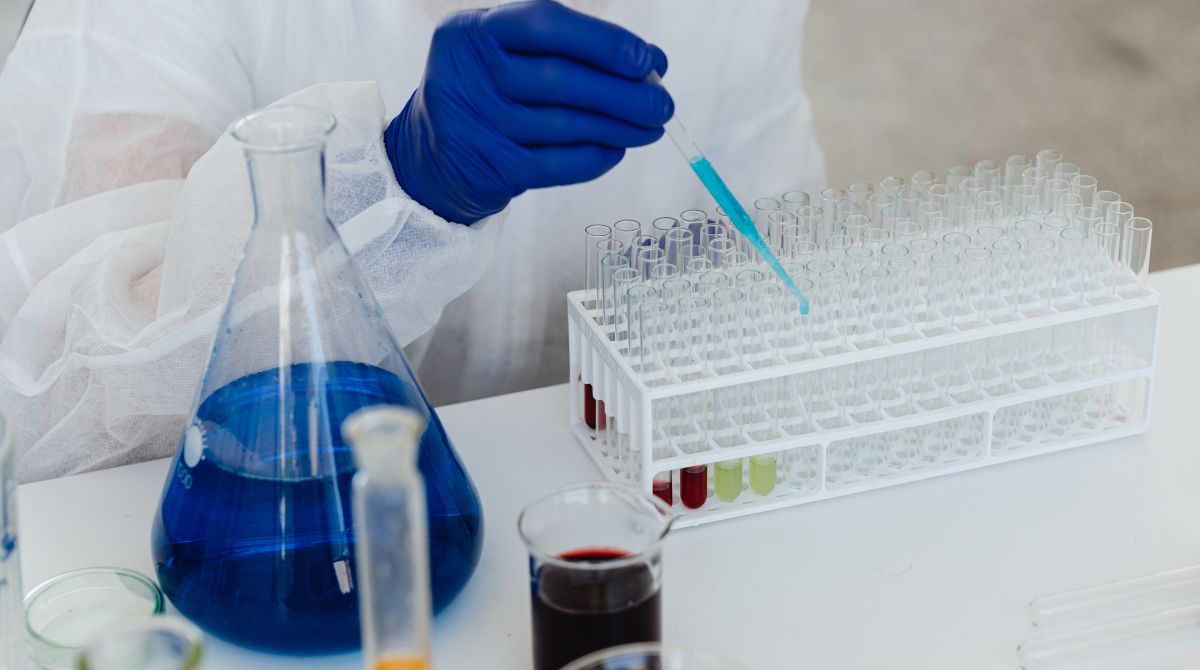Kingston University teams up with industry leading chemistry partners to develop new synthetic compound library
Posted Monday 9 October 2023
 Kingston University teamed up with industry leading partners Asynt and Key Organics to develop the synthetic compound library, which will help with drug discovery programmes.
Kingston University teamed up with industry leading partners Asynt and Key Organics to develop the synthetic compound library, which will help with drug discovery programmes.
Experts from Kingston University's Chemistry Department have come together with two leading industry partners to develop an accessible new synthetic compound library.
Dr Stephen P. Wren, who led the project and heads the University's Wren Group, worked alongside Professor Adam Le Gresley and PhD candidate Nathan Long. They teamed up with global sustainable laboratory equipment visionaries Asynt and renowned worldwide chemical products supplier Key Organics to create the library, which can help enrich drug discovery programmes around the world.
A compound library is a collection of stored chemicals usually used ultimately in high throughput screening or industrial manufacture, particularly around drug discovery.
The synthetic compound library built by the researchers was created to promote accessible new chemistries with lower-cost synthetic compounds readily available for scientific research.  PhD candidate Nathan Long with the equipment supplied by the partners.
PhD candidate Nathan Long with the equipment supplied by the partners.
The library comprises 28 anilino and benzylamino monosquarate-amide squaric acid derivatives, designed as bioisosteric replacements for the omnipresent carboxylic acid moiety. These have been used to demonstrate the potential for the generation of additional novel compounds, as compounds in this class can act as substrates in further chemical transformations. These can then be supplied in various formats to assist with drug discovery worldwide.
By partnering with leading industry experts Asynt and Key Organics, the Wren Group enables access to high-quality chemical starting materials, DrySyn oil-free heating blocks and CondenSyn waterless air condensers.
Published in the SynOpen Theime Journal, the paper explains more about how DrySyn and CondenSyn can improve conditions and reaction success as well as reduce environmental impact in a laboratory.
Dr Wren said the partnership working between Kingston University, Asynt and Key Organics made the project possible. "We chose to work alongside Key Organics and Asynt because they are leading suppliers of chemical building blocks and parallel synthesis equipment. The Asynt equipment was very user-friendly and helped to maximise our output, while our two-way exchange of chemicals with Key Organics was a joy to behold – I want to thank them both hugely for their input," he said.
- Find out more about research at Kingston University.
- Read more about the project in the SynOpen Theime Journal.
Contact us
General enquiries:
Journalists only:
- Communications team
Tel: +44 (0)20 8417 3034
Email us



